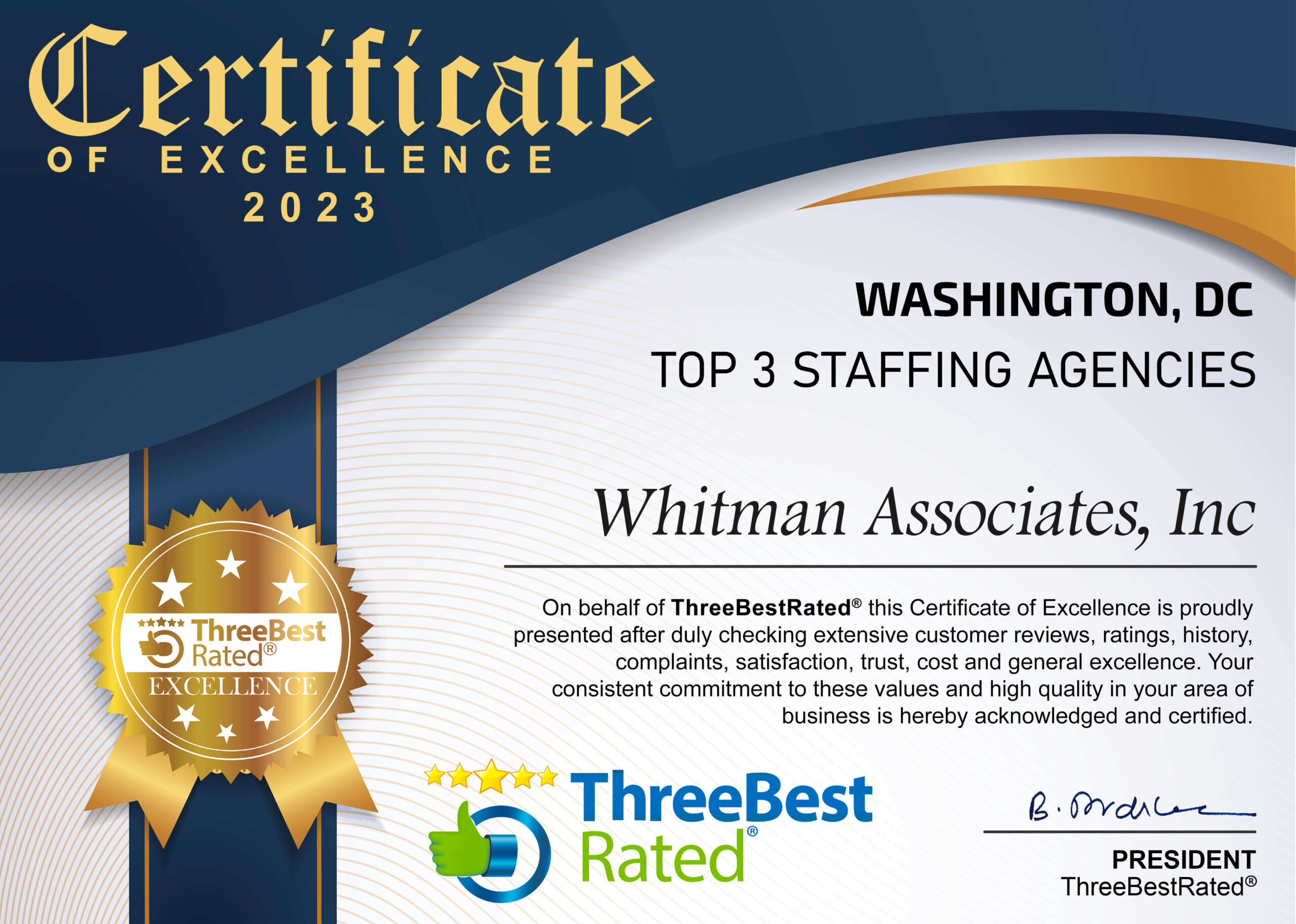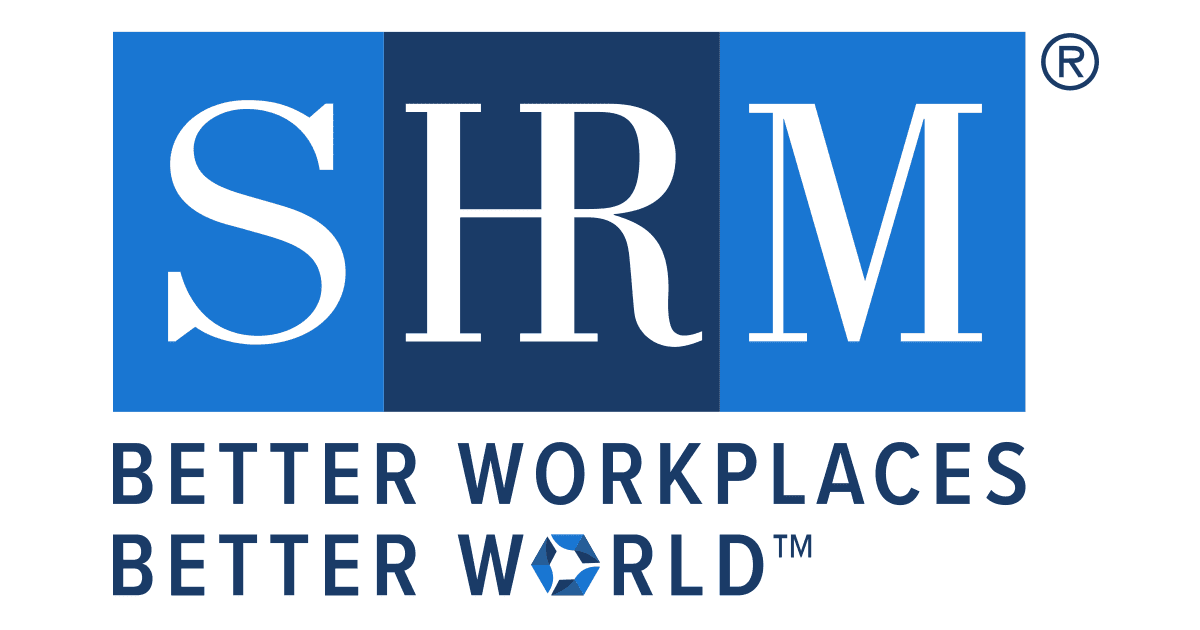Office work is ubiquitous in the D.C. metropolitan area. However, many people may be returning to work after some time away, working remotely or joining the workforce for the first time, and may be rusty with office etiquette. Whatever your situation, it is important to be aware of office behavior guidelines and best practices.
Most employers provide written policies that make it clear how employees are expected to behave when representing the company. Nonetheless, it is important for job seekers to educate themselves on the do’s and don’ts of office etiquette. That is true whether you are preparing for an interview, starting your first day on a new job, or learning how to prepare for a return to the office.

Office work is inherently team-based. Workplace etiquette requirements are more than a series of boxes that need to be checked. Instead, they are best practices that allow you to support your team members and maximize your integration into a new team environment. The do’s and don’ts of office etiquette are meant to provide a framework for effective collaboration.
Review basic office behavior guidelines
DO your best to make a good impression each day
New and returning office workers need to ensure they are punctual and dressed appropriately for their roles. Maintaining appropriate work attire and an accurate calendar may be a good place to start if you have been absent and are wondering how to prepare for a return to the office.
DON’T police your teammates
As you’re reviewing office etiquette do’s and don’ts, you may be tempted to call out team members who are not following best practices. However, it’s probably not within the scope of your role to supervise your coworkers. If you feel there is a serious issue with one of your colleagues, follow the proper channels for reporting employee behavior so that their supervisor can remind them of the office behavior guidelines.
DO learn how to properly make requests like taking time off
As a new hire, you may be in a probational situation with specific requirements regarding requests for time off. Familiarize yourself with best practices, and find out about your company’s guidelines as early as you can.
DON’T conduct a job search while at the office
This is especially relevant for temporary hires. While in your current role, you will likely be searching for a permanent placement of some kind. Do not search for other jobs or work on your resume while you are at the office.
Familiarize yourself with your company’s HR policies
DO read your company’s office behavior guidelines and learn where to ask questions
Basic office etiquette do’s and don’ts are common to most industries and organizations, but your employer may have a unique approach. New hires are usually provided with an employee handbook or basic behavioral guidelines as part of their onboarding. Be sure to read these, and learn which personnel you can bring your questions to.
DON’T assume that any team member can answer your questions
Human resource departments exist for a reason. Companies employ specialists to coordinate behavioral policy and ensure a positive work environment. If you have questions, ask the appropriate person – not every team member will be familiar with your organization’s official policies which may vary depending on your specific position.
Follow COVID best practices
DO some research into the COVID requirements in your industry
The do’s and don’ts of office etiquette have seen dramatic changes in the past few years. This includes basic logistical concerns around hybrid and remote work as well as new expectations for office interactions. Most organizations now have written guidelines that cover COVID-related issues such as masks, personal distance and cleaning policies. Make sure you know what your organization’s policies are, as the health of your coworkers may depend on it. It’s important to be respectful of your colleagues and following company guidelines regarding COVID is a great way to do that.
If you are working remotely, be sure to behave professionally in your online interactions. Likewise, be patient and courteous with colleagues who are navigating unorthodox work arrangements.
DON’T assume everyone is comfortable with a handshake
Recent events have made it clear that everyone needs to respect the personal space of others. One consequence of this is a reduction in the number of handshakes during an office workday. There is no widely agreed-upon substitute for handshakes at this time.

Ask your colleagues before going in for a handshake. If you are uncomfortable with others in your personal space, you may express this, but be sure to do so tactfully.
Return to the office with Whitman Associates
Finding a position that matches your experience and career goals simplifies a lot of questions around office etiquette.
Whitman Associates, Inc. has been connecting people in Washington, D.C., Maryland and Northern Virginia with the region’s top employers since 1972. We are happy to provide office etiquette do’s and don’ts specific to your new position. Call (202) 659-2111 in the DMV area or email us your resume.





 Romona is a senior administrative professional with over 27 years of experience providing executive level operational, strategic, and program support to C-level executives, their teams, and the organizations they lead. She has been affiliated with Whitman Associates for 20+ years.
Romona is a senior administrative professional with over 27 years of experience providing executive level operational, strategic, and program support to C-level executives, their teams, and the organizations they lead. She has been affiliated with Whitman Associates for 20+ years. Allison Gartner is a recent graduate of Virginia Tech with a degree in Wildlife Conservation. She has enjoyed working with Whitman Associates because it has given her the opportunity to participate in different professional assignments that have helped her personal and professional growth.
Allison Gartner is a recent graduate of Virginia Tech with a degree in Wildlife Conservation. She has enjoyed working with Whitman Associates because it has given her the opportunity to participate in different professional assignments that have helped her personal and professional growth.








